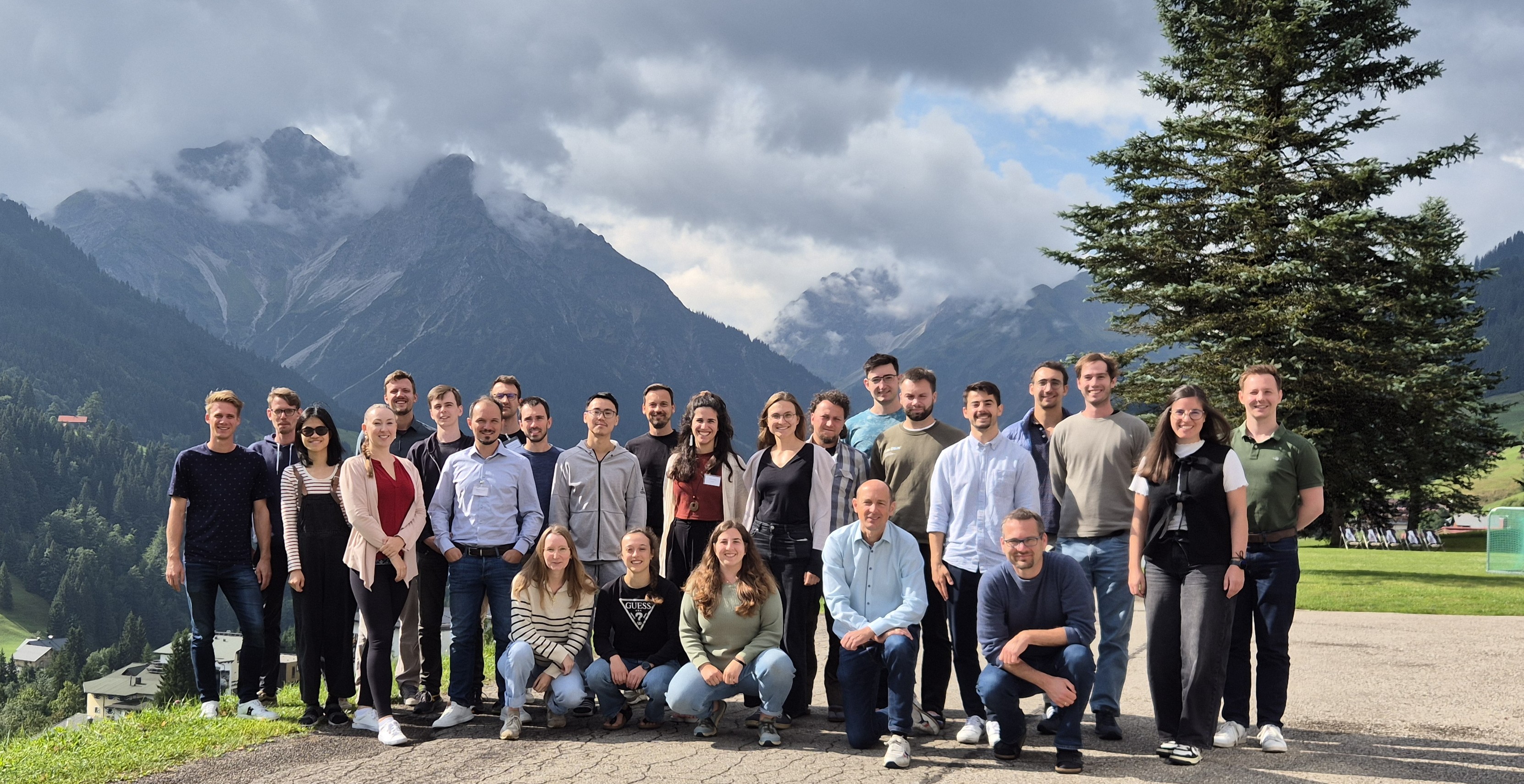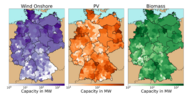M.Sc. Carolin Ayasse

Long-term decarbonization of urban energy systems
+49 (0) 6151 16-21721
fax +49 (0) 6151 16-21712
S3|10 305
Landgraf-Georg-Str. 4
64283 Darmstadt
Research Interest
General Research Interest:
- Energy system design optimization
- Municipal heat planning (Kommunale Wärmeplanung)
- Data availability for energy system models
- Uncertainty analysis of energy system models
Research Project:
The Heat Planning Act (Wärmeplanungsgesetz), which came into force on 01.01.2024, aims to decarbonise the heat supply in Germany by 2045. Heat in a municipality can be provided by a variety of different centralised and decentralised technologies. With increasing requirements for energy systems to achieve climate targets, centralised solutions are of increasing importance. They involve distributing heat from one or more central producers to various consumers via heating networks. Furthermore, the energy demands of buildings can be reduced in the long term through building retrofits. Given the variety of variables and the complexity of the problem, optimization models can be used to find the cost-optimal way to decarbonize energy systems.
Obtaining data is a major challenge when working with these energy system models. Often, the required data does not exist or cannot be used without further consideration for data protection reasons. If data is available, it is often of inadequate quality and requires time-consuming pre-processing. Our research focuses on the development of optimisation models for the decarbonisation of urban energy systems, taking the aforementioned aspects into account.
Open theses
Supervisor: Carolin Ayasse
Earliest start: immediately
Type: Bachelor Thesis
Spatial aggregation, and the resulting copper plate assumption, is a common simplification in energy systems modeling. This thesis should examine under which conditions using the copper plate assumption might lead to significantly different outcomes compared to spatially resolved models. The research begins with a comprehensive literature review to identify key factors in the urban heat sector that could markedly influence optimization results depending on the chosen spatial resolution.
Using the CESM optimization framework ( https://github.com/EINS-TUDa/CESM/tree/main), two distinct models of the urban heat sector will be developed. One model will adopt the copper plate assumption by aggregating heat sources and demands over the entire area, while the other will incorporate spatial resolution to account for local variations. The comparative analysis will focus on parameters such as heat demand distribution, network losses, and localized renewable resource potentials to determine how these factors contribute to discrepancies between the two modeling approaches.
The expected outcome of this study is to establish a methodology for comparing aggregated and spatially resolved models, and to identify specific scenarios where the simplified aggregation is either appropriate or insufficient.
Supervisor: Carolin Ayasse
Earliest start: immediately
Type: Master Thesis
Common energy system models often fail to account for real-world barriers that limit the adaptability of energy systems to changing circumstances. These models tend to overestimate flexibility by assuming that the energy system can quickly and extensively adjust in response to new developments. This is especially evident in multi-stage energy system models, where some uncertainties are only revealed at a later stage. Previous worked showed, that in such models, the calculated regret, i.e., the additional cost of making planning decisions based on incorrect assumptions about the future, is often underestimated. This underestimation occurs because the model assumes an unrealistically high capacity for rapid adjustment once uncertainties are revealed.
In reality, energy systems face significant inertia due to various institutional, technical, and logistical constraints. These may include long planning and permitting timelines, slow approval processes, and extended construction durations. Such factors can substantially delay the implementation of corrective measures, thereby increasing the actual regret associated with incorrect initial assumptions.
The aim of this thesis is to:
- Identify and analyze real-world factors that contribute to inertia in energy system transformation.
- Implement inertia-inducing dynamics into a two-stage energy system model, focusing on the most impactful factors.
- Define a set of future scenarios to represent uncertainty
- Evaluate the regret based on a previously developed evaluation framework for different scenarios
- Assess how increased system inertia affects regret
Short Bio
- Since 2023: PhD Student at EINS
- 2020-2023: M.Sc. Energy Science and Engineering at TU Darmstadt
- 2016-2020: B.Sc. Environmental Engineering at TU Darmstadt
Publications
[Journal]
Carolin Ayasse, Julia Barbosa, Florian Steinke:
Optimal decarbonization of urban heating systems considering interdependencies between building retrofits and heat supplies.
In: Elsevier Energy 338 , P. 138628, 2025
[Journal]
Markus Duchon, Jessy Matar, Mahsa Faraji Shoyari, Alexander Perzylo, Ingmar Kessler, Patrick Buchenberg, Philipp Kuhn, Thomas Hamacher, Thorsten Schlachter, Wolfgang Süss, Nguyen Xuan Thinh, Haniyeh Ebrahimi Salari, Jasmin Latko, Minsheng Xu, Maxim Shamovich, Dominik Schlütter, Jérôme Frisch, Kushagar Rustagi, Markus Kraft, Carolin Ayasse, Florian Steinke, Michael Metzger, Laura Kuper:
A Platform Ecosystem Providing New Data For The Energy Transition.
In: Association for Computing Machinery ACM SIGENERGY Energy Informatics Review 4 , P. 226-237, 2025



